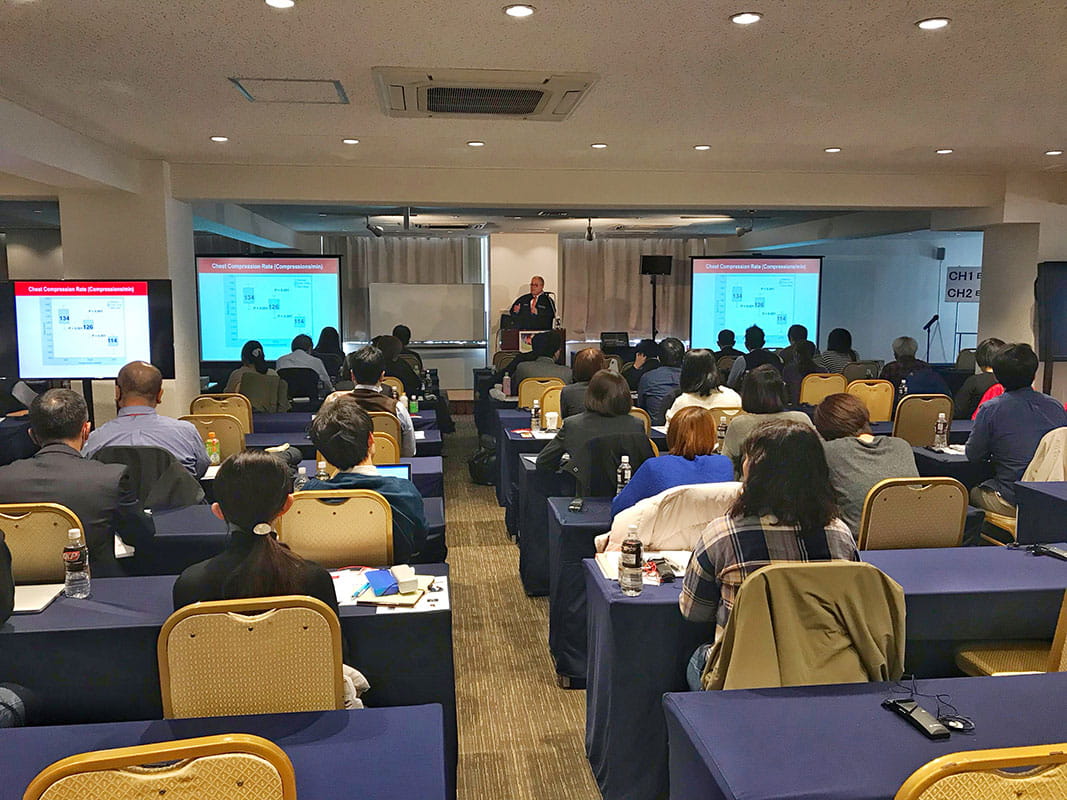American Heart Association hosts first ever Japan Regional Conference

American Heart Association instructors from Japan recently gathered in Tokyo to celebrate the Association’s first Regional Conference. Over 90 instructors from throughout Japan heard the latest updates from the Association’s science experts at a conference center near Shinagawa Station in Tokyo.
The Association’s training network in Japan actively conducts life-saving training throughout the country. Instructors in Japan may be doctors, nurses, EMTs, or laypeople. Regardless of their background, they are a relentless force to improve the response to sudden cardiac arrest. Through the Emergency Cardiovascular Care (ECC) programs, the Association’s instructors trained about 50,000 people in Japan last year.
Shinagawa City, a densely populated special ward in Tokyo, is a large commercial hub in Japan. Home to several major corporate headquarters and embassies, it’s also known for its historical significance, cultural attractions, and picturesque views of Tokyo Harbor.
The agenda featured speakers from each ECC Scientific Subcommittee, including Science, Pediatric Emphasis Group, Education Science and Programs (ESP), and Systems of Care. Each speaker’s goal was to further equip the instructors to teach in the classroom, improve their clinical care, and increase survival through more effective local implementation.
Katie Dainty, PhD, represented the Science Subcommittee and gave a presentation entitled “ECC Science Update” highlighting some of the recent publications related to CPR and Emergency Cardiovascular Care. She also gave an overview of the ILCOR Continuous Evidence Evaluation Process and provided the participants with a deeper understanding of how scientific organizations measure strength and quality of evidence.
Kenneth Navarro, M. Ed., presented on “Current Trends in Pediatric Resuscitation Care” on behalf of the Association’s Pediatric Emphasis Group. Mr. Navarro discussed the emerging science on chest compression technique as well as drug therapy in pediatric patients. For the prehospital participants, Mr. Navarro also outlined the current debate between treating patients on scene or transporting to the hospital and how the evidence has weighed into the discussion.
Beth Mancini, RN, PhD, introduced the topics from the AHA’s 2018 Scientific Statement: Educational Strategies to Improve Outcomes from Cardiac Arrest. She gave an overview of the gaps in education that impede the translation of science to effective care and gave exciting examples of innovations in healthcare education that can improve training and more effectively equip rescuers to perform high-quality CPR.
Keiichi Ikegami, MD PhD, an Association instructor and educational delivery expert, gave a presentation on classroom implementation of educational principles, highlighting key concepts of simulation and adult learning.
Jeanette Previdi, RN, MPH, finished the day on a high note by discussing the importance of a systems approach to resuscitation care. Representing the Association’s Systems of Care Subcommittee, she demonstrated through compelling examples how the crucial step of localized implementation of scientific guidelines can make a profound difference in patient outcomes.




